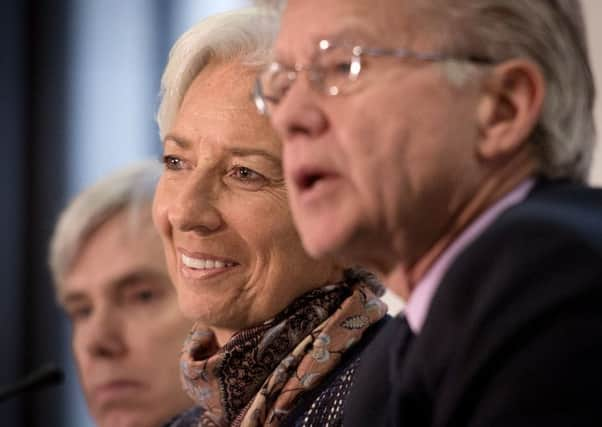IMF chief Christine Lagarde ‘hopes UK will stay in EU’


IMF managing director Christine Lagarde said “certainty is always better than uncertainty” when asked about the prospect of waiting up to two years for a vote on a possible British exit.
She stressed that in her personal view she hoped that the UK would vote to remain in the 28-member bloc.
Advertisement
Hide AdAdvertisement
Hide AdThe next report by IMF inspectors will be produced in May 2016 and will examine the potential consequences of a British exit from the EU, Ms Lagarde said.
The issue was identified in the annual “health check” by the IMF on the UK’s economy, which also highlighted concerns about high house prices, the UK’s current account deficit and the public finances.
But it was a broadly positive assessment, which stated “the UK’s recent economic performance has been strong, and considerable progress has been achieved in addressing underlying vulnerabilities”.
Chancellor George Osborne said: “Today’s IMF report, frankly, could hardly be more positive.”
Forecasts produced by the IMF suggested “steady growth looks likely to continue over the next few years”, averaging around 2.25 per cent in the medium term.
Asked about the prospect of a referendum being delayed until the end of 2017 deadline set by the Prime Minister, Ms Lagarde said: “Certainty is always better than uncertainty, that’s a commonplace statement on the part of the IMF.
“But as an economist and in charge of doing forecasts, I’m trying to assess and model through the various hypotheticals, the more certainty we have, the better.”
She said there was little sign of economic damage from the referendum yet, but there were key measures which could give an indication that the uncertainty was deterring investors.
Advertisement
Hide AdAdvertisement
Hide Ad“I think what will be interesting to watch is to look at the balance of payments, to look at how much foreign direct investment is coming in, to look at the borrowing pattern of the UK, how are the Treasury bond issuances over-subscribed? If there is a sense of disenchantment or concern, as observed in the future - because we are not seeing it at the moment – then it would be an indication that certainty would be much better than uncertainty.”